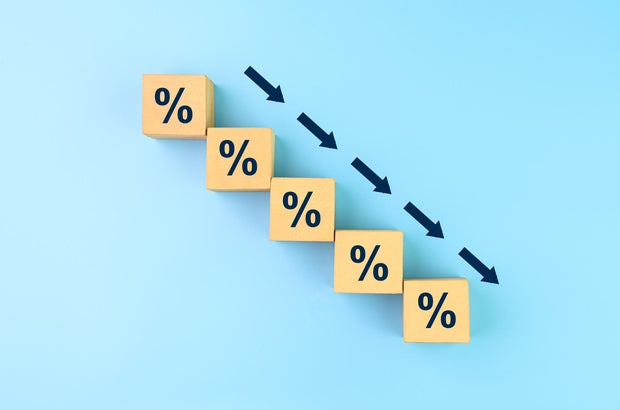 Borrowers can use a few different methods to get a low home equity loan interest rate this November.
Getty Images
Borrowers can use a few different methods to get a low home equity loan interest rate this November.
Getty Images
If you're looking for a cheap way to borrow a large amount of money right now, home equity is arguably the best way to do so.
Not only do home equity loans and home equity lines of credit (HELOCs) have lower interest rates than many popular alternatives, but they also come with a significant amount of money available to use. Right now, the average homeowner has approximately $330,000 worth of home equity. Keeping a 20% buffer, as most lenders prefer, it equates, on average, to hundreds of thousands of dollars worth of equity to use currently. It's possible that, depending on your financial situation, you may have more.
And with an average home equity loan rate of 8.35% now, this type of borrowing is almost three times cheaper than credit cards and many interest points lower than personal loans. But there are some ways to get an even less expensive home equity loan rate this November. Below, we'll break down three of them.
See what home equity loan rate you currently qualify for here.
How to get a low home equity loan rate this November
Want to secure the lowest home equity loan rate possible this November? Then make sure to do all of the following:
Boost your credit score
This may seem obvious but some borrowers will apply for a loan before ensuring that their credit is in top shape. Don't make that same mistake. After all, the rates you tend to see listed on lender websites are for those borrowers with the highest credit scores and cleanest backgrounds. If you don't have both, expect to be offered an above-average home equity loan rate. So, to start, boost your score as high as possible right now – even if it means having to delay your application slightly.
Explore your current home equity loan options online now.
Shop around for lenders
Did you know that you don't need to automatically use your current mortgage lender to borrow from your home equity? You can use other banks and institutions, too. And those competitors may have lower rates and better terms. But you won't know which is which until you start shopping around for lenders. Don't just look at the rate, however, as a lower rate could potentially disguise excessive fees and penalties. Be sure to calculate all potential scenarios, then, to ensure that the lower rate isn't negated by other charges.
Monitor specific dates
November will be loaded with big economic developments, the first of which will be the unemployment report for October, released on November 1. That will be followed by the next Federal Reserve meeting (and likely rate cut) on November 6 and November 7 and the next inflation reading, slated to be released on November 13.
All three of these can and likely will influence the rates lenders offer home equity loan borrowers, potentially to a significant degree. So monitor them closely for opportunities to lock in a below-average rate. Remember that rates on home equity loans change daily, so they could adjust on one or more of these dates in November.
The bottom line
While the conventional ways of securing a low home equity loan rate still apply in November - like boosting your credit score and shopping around for lenders - the month will also offer borrowers some timely opportunities to act, as well. With new unemployment and inflation data to be released in the month and the first Fed meeting post-September rate cut scheduled, there will be plenty of opportunities for prepared homeowners to secure a low interest rate in the month – if they start acting now.
Learn more about your best home equity loan options here.
Matt Richardson is the managing editor for the Managing Your Money section for CBSNews.com. He writes and edits content about personal finance ranging from savings to investing to insurance.

 1 settimana fa
19
1 settimana fa
19















 English (US) ·
English (US) ·